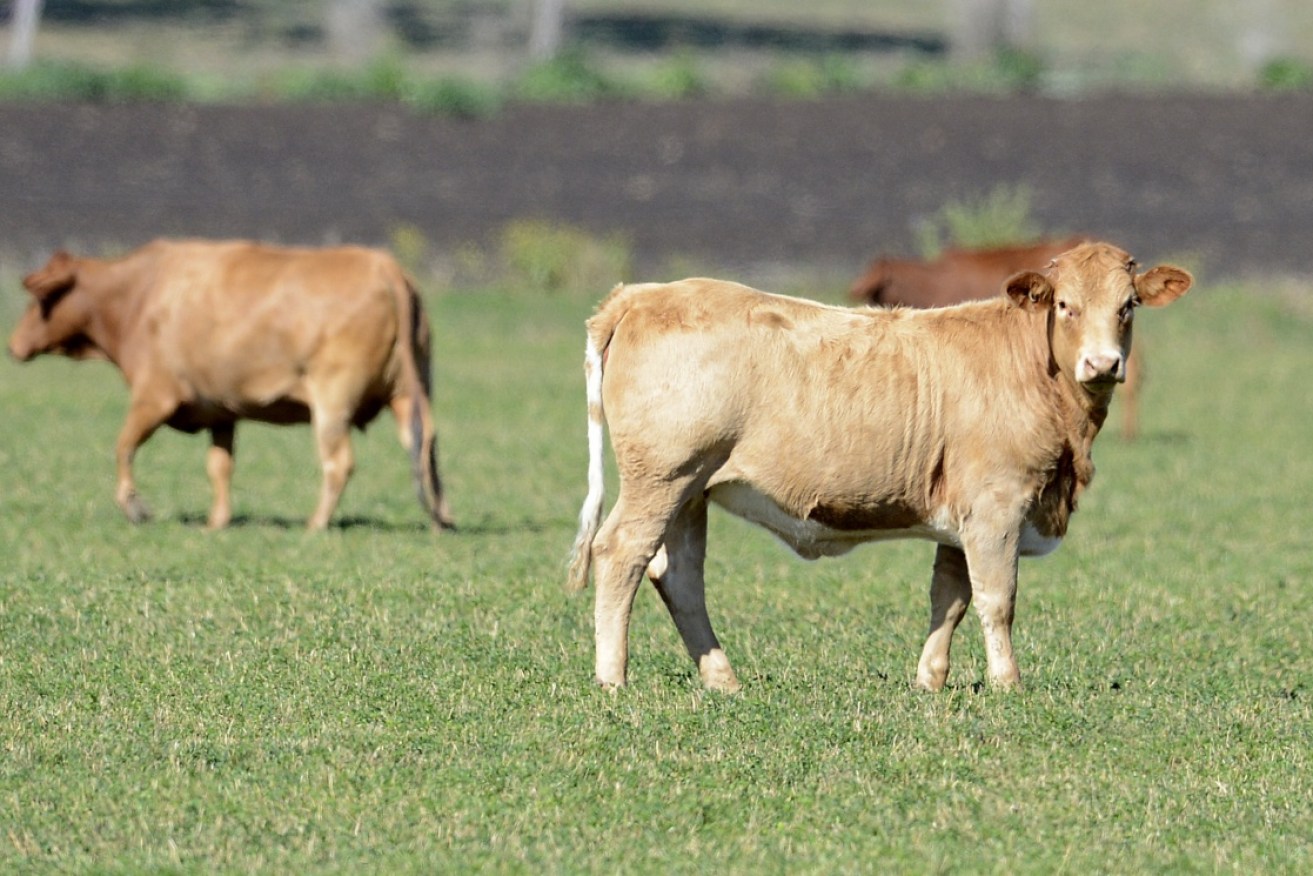The inconvenient truth of Australia’s CO² emissions

Methane has an effect on global warming 28 times higher than carbon dioxide.
When it comes to finding a culprit for environmental degradation, cars are often used as a golden standard.
But what about the steak we so often wash down with a glass of red?
Yes, driving is bad for the environment.
The Intergovernmental Panel on Climate Change (IPCC) estimates that direct emissions from transport (road, air, rail and maritime) account for 6.9 gigatons per year, about 14 per cent of all emissions from human activities.
However, meat production is unexpectedly worse.
Besides transporting meat in large, refrigerated trucks from feedlots to slaughterhouses to processing centres to your grocery store, raising livestock uses about 70 per cent of agricultural land and generates about 14.5 per cent of global greenhouse gas emissions.
This makes agribusiness the second-highest source of emissions and one of the leading causes of deforestation, biodiversity loss and water pollution.
The recent devastation of the Amazon is a testament to this claim.
However, the amount of greenhouse gas emissions generated from livestock is only part of the problem. It is the types of greenhouses gases that livestock generates – methane and nitrous oxide – that make it so much worse.
Methane, which is mainly produced by manure storage and enteric fermentation, has an effect on global warming 28 times higher than carbon dioxide.
On the other hand nitrous oxide, which is also produced as a result of manure storage, as well as the use of organic/inorganic fertilisers, has a global warming potential 265 times higher than carbon dioxide.
This does not take into account the consequential greenhouse gases produced from soil carbon dioxide and nitrous oxide emissions as a result of the manufacturing and use of inorganic fertilisers, or land-use changes.
So clearly, livestock plays an enormous role in global greenhouse gas emissions. The question is: Why isn’t anyone doing anything about it?

Tolls have been around for decades, but in recent years were not so popular with commuters. Photo: AAP
Quite often we hear of calls against petrol-powered vehicles by governments and climate action groups.
Yet at no point do these groups or governments address the issue of meat consumption within climate change.
The recent wave of climate change protests organised by the global environmental movement, Extinction Rebellion, only targeted greenhouse gas emissions. Look no further – the ACT government’s Climate Change Strategy is another example.
Among other things, the ACT government wants to encourage Canberrans to ditch their cars in favour of “car-free-days”, cycling or public transport.
Other options include encouraging people to use electric vehicles through subsidisation, assessing the cost of car registration based on usage, restricting parking and even charging people an internal carbon tax.
We need a shift in our mindset. Meat consumption may be deeply rooted in our culture, but it is also the biggest reason why the planet is suffering. We need to kill this dangerous obsession before it is too late.
Of course, it is not possible to stop eating meat completely.
However, eating meat in moderation should be a priority, if not just for our collective health, then for the planet’s. We could start by cutting our intake of meat by one day a week. It is not hard.
In fact, eating less meat is much more easily accomplished than converting to electric vehicles or 100 per cent renewable energy –although we still should be moving in that direction.
Consuming less meat will also reduce greenhouse emissions at the fraction of the price than what it will cost us otherwise.
Private solar panels cost money. Electric cook-tops and heating systems cost money.
Electric vehicles cost money.
By eating less meat, we would not only reduce greenhouse gases but also potentially save us a little bit of money in the face of governments insisting on radical electrification plans.
Arthur Marusevich is a Canberra-based lawyer who writes on legal, financial and economic matters








